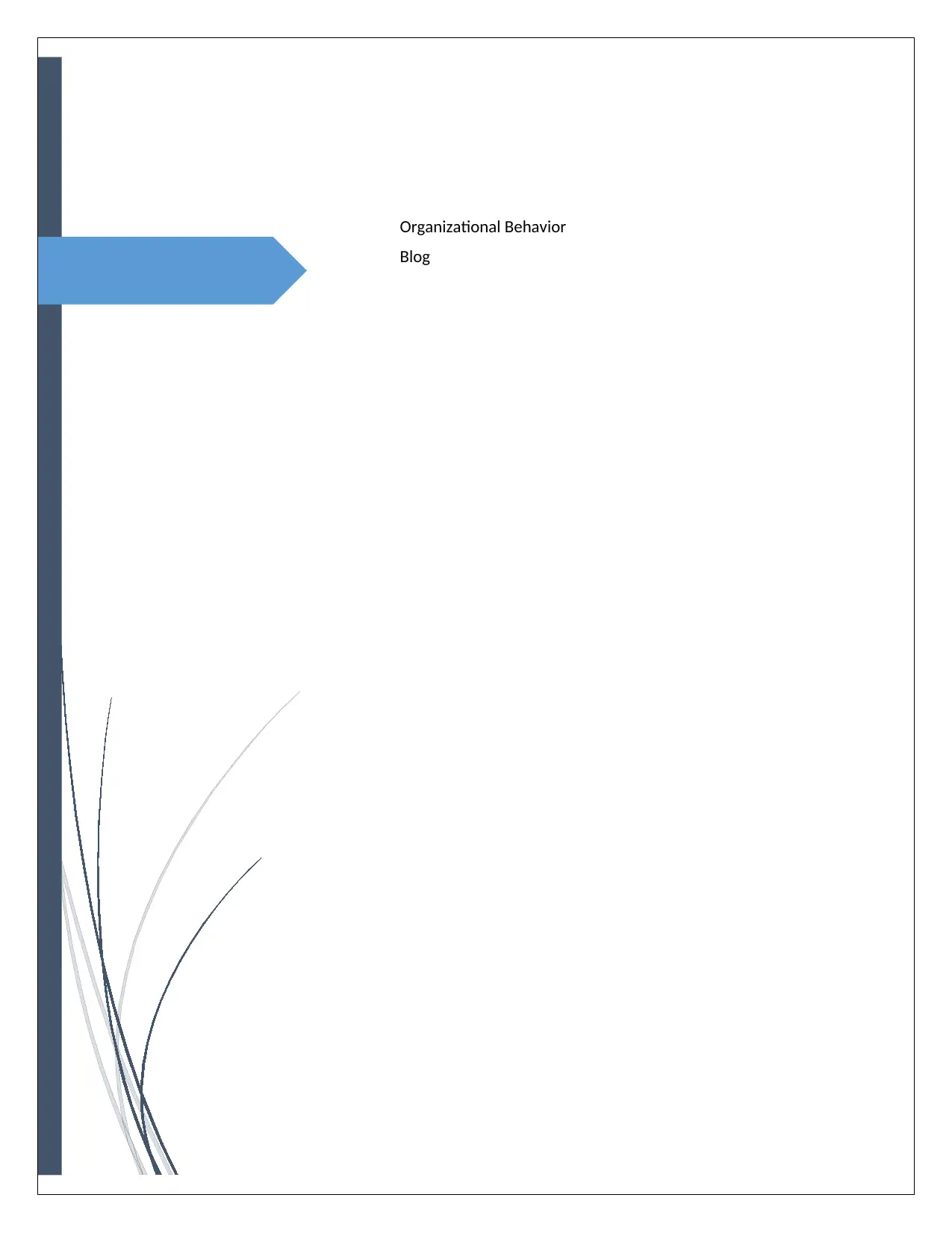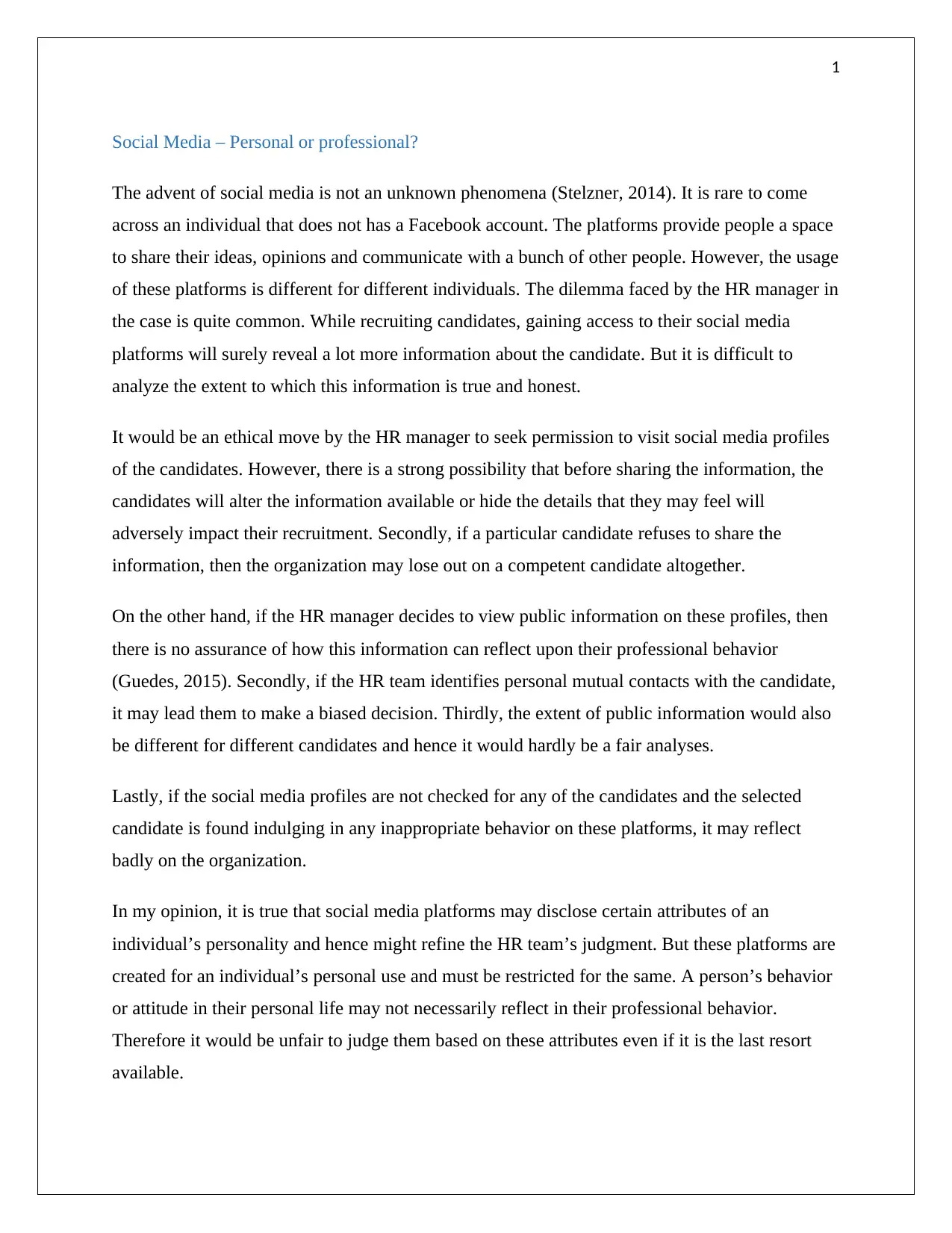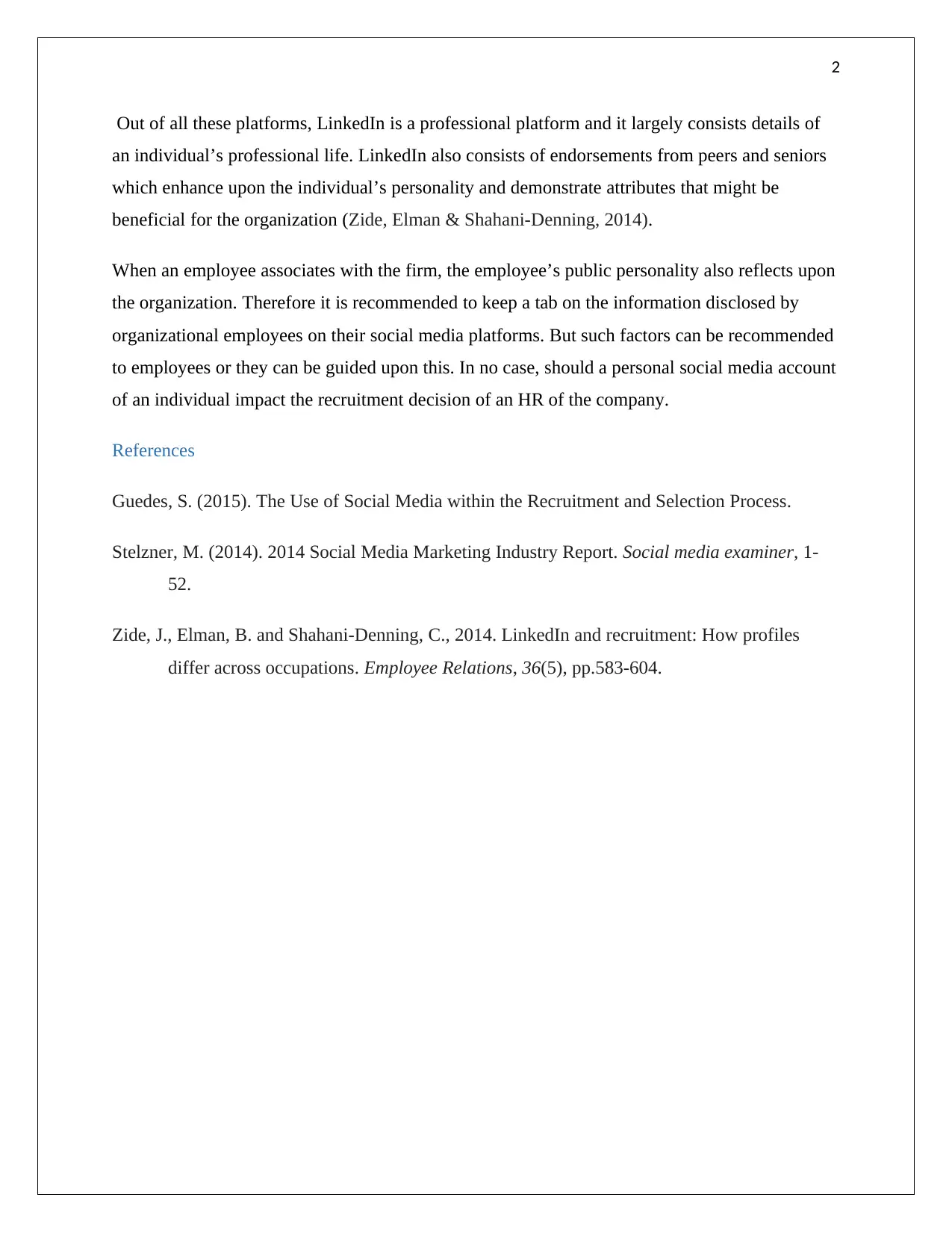Social Media's Influence on Recruitment and Employee Behavior
VerifiedAdded on 2021/04/19
|3
|647
|27
Report
AI Summary
This report delves into the complex relationship between social media and recruitment, examining the ethical dilemmas faced by HR professionals. The report highlights the challenges of assessing candidates based on their social media profiles, considering the potential for biased decisions and the difficulty in verifying information. It emphasizes the distinction between personal and professional behavior, suggesting that a person's social media presence may not accurately reflect their work ethic. The report recommends a balanced approach, suggesting that while personal social media should not influence hiring decisions, the professional platform LinkedIn can provide valuable insights. The report also suggests that organizations keep a tab on their employees' social media accounts. It references studies on social media marketing and LinkedIn's role in recruitment, advocating for a cautious approach to using social media in candidate evaluation, focusing instead on professional platforms and guiding employees on responsible social media use. The report concludes that while social media offers some insights into personality, it should not be the primary factor in recruitment decisions.
1 out of 3










![[object Object]](/_next/static/media/star-bottom.7253800d.svg)